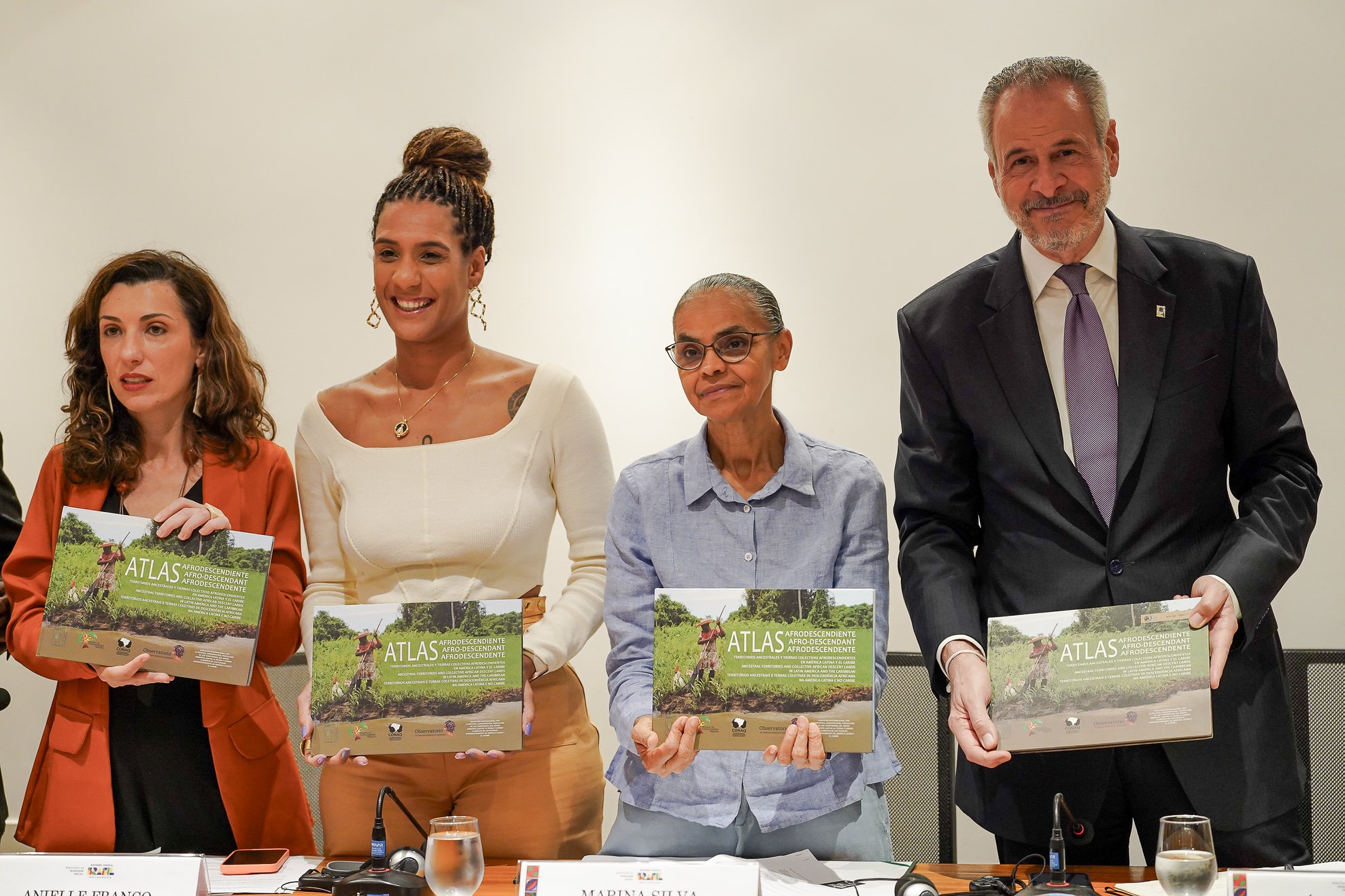Commission of Traditional Communities Is Established for COP30
Led by Minister of Racial Equality Anielle Franco, the group is part of the People’s Circle, launched by the COP30 presidency, ensuring the participation of civil society

By Mayara Souto / COP30
On Thursday, May 29, the International Commission of Traditional Communities, Afro-descendants, and Family Farmers was launched in a ceremony at Brasil’s Ministry of Foreign Affairs (Ministério de Relações Exteriores/ MRE). The group is part of the People’s Circle, designed by the COP30 presidency to represent these populations in climate change dialogues.
"The Commission is essentially about incorporating these individuals into the negotiation process and placing them at the heart of our efforts. Since 2023, I’ve said that we cannot move forward on any issue related to racial inequality in this country without listening to those most affected. Including quilombola communities and Afro-descendant peoples — the people preserving our planet — in the Commission, the People’s Circle, and COP30 is essential for our success,” said Minister of Racial Equality Anielle Franco, the group’s leader.
Representatives from the Coalition of Territories and Afro-descendant Peoples in Latin America and the Caribbean (Coalizão de Territórios Afrodescendentes da América Latina e do Caribe/CITAFRO) attended the ceremony and read a statement to the authorities. "Our goal is to politically advocate for the defense, legal recognition, and collective occupation of our ancestral territories. This statement comes from all of us—Afro-descendant individuals who collectively maintain traditional ways of life and a close, harmonious relationship with our lands. Our knowledge and sociocultural practices, developed in these territories, are key to climate action. That’s why these people must be recognized as rights-holders and as relevant actors in the bodies and mechanisms of the United Nations Framework Convention on Climate Change (UNFCCC),” said Katia Peña, CITAFRO representative.
Representation
The initiative of the COP30 presidency is part of the conference's innovative agenda, seeking to promote broader inclusion in climate change debates. "The architecture of COP30 in Brasil — like that of the G20, marked by its differences from other contexts — seeks to address the longstanding demand for greater social participation. In addition to the established institutional forms of representation at COP, the idea of creating the People’s Circle, the Finance Circle, the COP Presidents’ Circle, and a Global Ethical Stocktake- GES ensures this desire for democracy — concerning everyone — is reflected in real participation," explained Marina Silva, the Minister of Environment and Climate Change.
"The architecture of COP30 in Brasil — like that of the G20, marked by its differences from other contexts — seeks to address the longstanding demand for greater social participation. In addition to the established institutional forms of representation at COP, the idea of creating the People’s Circle, the Finance Circle, the COP Presidents’ Circle, and a Global Ethical Stocktake- GES ensures this desire for democracy — concerning everyone — is reflected in real participation"
— Marina Silva, the Minister of Environment and Climate Change
Overall, the COP30 Presidency has launched four thematic circles to accelerate the implementation of the Paris Agreement and foster climate action beyond the conference's two-week period, promoting global mobilization against climate change. Each group operates independently and in parallel to the negotiations, supporting the COP30 Presidency.
COP30 President Ambassador André Corrêa do Lago stressed the importance of expanding civil society participation in the conference, which will take place in the heart of the Amazônia, where many indigenous and traditional peoples live.
"One of the major challenges in climate negotiations is that only countries have a voice. That's why the Action Agenda was created — to enable the participation of other actors. As was noted here, observers may speak at meetings under certain conditions. But that’s not what we want. We want to prepare in advance and work in advance. You have my full support, enthusiasm, and commitment to this effort. Please consider me accountable, as this matter deserves the maximum attention,” stated Corrêa do Lago.
The Commission will gather representatives from 16 Latin American organizations — to be determined — to create dialogue spaces for climate action that include these communities. The group's first official meeting will take place during the 62nd Session of the Subsidiary Bodies of the United Nations Framework Convention on Climate Change (UNFCCC), which is to be held in Bonn, Germany, from June 16 to 26.
English Version: Trad. Bárbara Menezes
Proofreading by Enrique Villamil

